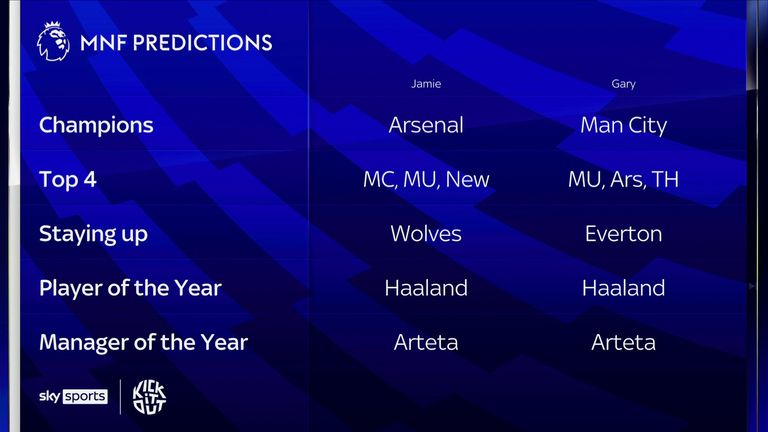How Important Are Head-To-Head Record Records In Trying To Determine The Outcome Of Sports?
Here are some arguments and examples of why head-to -head records may prove useful. Here’s a breakdown of why and how head-to-head records can be important:Psychological Edge:
Confidence: Teams who have had more head-to-head victories might feel more confident. On the other hand, opponents might be less confident.
The Intimidation aspect: A winning head-tohead record could create an emotional barrier for the team that loses.
Tactical Insights
Players and coaches can analyze Past Games to Understand What Strategies were successful or didn’t which could provide insights into the most effective strategy.
Planning can be affected by matchup problems. Certain types of play, or certain individual matches, can favor one team over another.
Performance Patterns
Consistent results across multiple games may indicate that one team or player is ahead of the other.
Record-keeping for Condition-Specific Conditions: Head-to-head records may highlight differences in performance under particular conditions, like home against. away matches, different places, or surfaces (in sports like tennis).
Relevance in Statistical Analysis:
Sample Size: A greater amount of matches could be more reliable in predicting. A few instances could not be statistically significant when making predictions.
Recent Form vs. Dominance from the past – The significance of head-tohead records has to be weighed with recent performance trends. It’s possible that a historically dominant team could be out of the form they were in. This can reduce the importance of past results.
Changes and injuries:
Team Changes: Over time, rosters can change due to retirements, transfers or even injuries. This could affect the nature of head-to -head results.
Coaching Changes New coaches can provide different strategies and motivation, which can shift the balance of power as shown by previous results.
External Factors
Venue and Conditions. The venue where matches were played may have also influenced the head-tohead record. Certain teams or players might excel at specific venues or conditions.
It is essential to take into consideration the significance of a game. The significance of a match (e.g., the finals or the regular season) will affect the performance of the team and may not reflect in head-to-head figures.
In conclusion, while head-tohead records can provide valuable insight and should be taken into consideration when predicting sports outcomes, they should not be the sole source of predictions. To improve the accuracy and accuracy of predictions a comprehensive study should include the players’ current performance, availability, their tactical adjustments along with other important factors. Check out the top tennis betting predictions for more tips.

What Are The Most Crucial Tactical And Strategic Considerations In Predicting Sport Outcomes?
It is crucial to take into consideration both strategic and tactical factors in determining the outcome of sports. It involves the execution of game strategies that take advantage of strengths of a team, while targeting its weaknesses. These are the most important factors.
Matchups are frequently the key to effective strategies. For instance an example, a soccer team could use a quick full-back to play the team with the forward.
The ability to adapt to changing circumstances: The strengths of a team can be maximized by adjusting strategies according to the weather the playing surface, or venue.
Flexibility, adaptability and flexibility:
In-game Adaptations: Teams that can adjust their tactic during a game tend to be more successful. This can include tactical substitutions, changing the formation, or altering defensive and offensive strategies according to the flow of the match.
The plan of attack of the opposition teams with the best chance of success are those that can effectively counteract it. Understanding how your opponent operates and anticipating their tactics will help you overcome any strengths of theirs.
Offensive and defensive strategies:
Defense Organization – Solid defensive tactics such as high pressing or deep defence can help stifle the offensive of your opponent. Teams that are well-organized tend to concede fewer goal.
Varying Attacking Strategies: Diverse and varied attacking strategies, like quick counterattacks, possession-based play or set-piece specialization can slash through even the most well-organized defenses.
Team and player roles
Clarity of roles: The roles of the team should be clearly defined to ensure that everyone understands what they are responsible for. Clarity is crucial to execute the game strategy.
Key Players – Employing key players to maximize their effectiveness can be important. For example the role of a playmaker or a target player in attack.
Historical and Situational Analysis
Past Meetings: Reviewing how teams have tactically approached previous encounters can provide insights into possible game plans and the outcomes.
Current Form – Tactical considerations need to be aligned to the current style of the team or individual players. If the team’s performance has changed, a tactic that worked in the past might need to be rethought.
Psychological Impact
Preparedness and Confidence: Well-prepared teams are more clear on their strategies. They also have more confidence in their playing. This mental edge can be crucial in games that are tight.
Effective strategies frustrate opponents and can result in mistakes and loss of motivation, which is essential.
Sport-Specific Considerations:
Soccer: Formations, such as 4-3-2 and 3-5-2 are essential. Additionally, set-pieces and pressing styles play an important role. The choice of tactics can influence the control of midfield as well as the utilization of large spaces, or the capability to break down defensive lines.
Basketball: The importance of tactics such as zone defense and. a man-to -man defense, pace, and offensive plays (e.g. the pick-and -roll play or isolation play) is essential.
Cricket: Field placement, bowling orders, and batsmanship sequences can have a major impact on the outcome of a match particularly in relation to various formats, like T20 vs. Test matches.
Coach and Management Influence
The ability to understand tactically: A coach’s ability to comprehend the game as well as devise and execute effective tactics can often be a major aspect in determining if an individual team will be successful.
Buy-in of the team: The degree at which the players are able to accept and understand the tactical plan will affect their execution. Implementing strategy with consistency is crucial.
To conclude, it is essential to think about the tactical and strategic aspects in predicting the outcomes of sports. They affect every aspect of the game, from the individual’s performance to the team’s dynamics. The combination of a deep knowledge of tactics, and examination of other aspects such as injuries or form. helps to in making accurate predictions. Take a look at the best wta tennis results today for site advice.

How Important Are Market Fluctuations And Odds In Predicting Sporting Results.
The importance of market-based odds and movement in predicting sports results depends on a variety of factors. This is why they are important:
Afficient market: Betting markets are considered to be efficient by aggregating the collective opinions and experience of multiple bettors. The odds reflect the collective opinion of the bettors on what is likely to occur.
Information Integration. Market odds are updated frequently to reflect the latest information such as updates to teams, weather conditions, or injuries. This is why they are a fantastic source for real-time data.
Indicator of Confidence
Probability Assessment: Odds represent the amount of probability that betting markets assign to each outcome. Higher odds indicate a higher probability. This means greater confidence.
Market Sentiment – Significant changes in odds such as rapid or continuous shifts may reflect a change in the market’s mood. This could be due to new information, or a shift in perceptions about the game.
Risk Assessment:
Bookmakers adjust odds for risk management and to balance their books. Understanding the perceptions of bookmakers as well as the risks associated with the game can be uncovered through these adjustments.
Arbitrage: Bettors can make profits by placing bets on each possible outcome.
Influence of Public Perception
Public Perception. Market odds influence the public’s perception. The media’s coverage can influence expectations, and affect the mood of a team or player.
Self-Fulfilling prediction: Betting activity may increase during high-profile sporting events that feature teams with a high likelihood of winning. This could cause additional fluctuations in odds and reinforce the predicted outcome.
Correlation statistic:
Accuracy Indictor: In general, market odds, it is correlated with the probabilities of outcomes.
Comparison of market odds and statistical predictions is a good method to determine the accuracy of models.
Consider the biases of the market:
Overreactions – Markets can react excessively to certain incidents, like the injuries of the most important players or recent changes in team form. This can result in excessively high the odds.
Some bookmakers underestimate underdogs when they are in high-profile matchups. This can be a good way to get value betting options for smart gamblers.
External Influences
Manipulation Risques: Betting can be affected by a variety of ways, including rumors, speculations and attempts to alter matches. Understanding the risk factors involved is essential when interpreting changes in odds.
Regulations change: A change in gambling regulations and/or market dynamics could affect movement of the odds and market efficiency.
Contextual Assessment:
Complementary tool: When making predictions, market odds should be considered alongside other factors including team form and player injuries.
Integration with Models: Market odds can be integrated into predictive models or directly as input variables or as a reference point for evaluating the performance of models.
Market odds and movement are important in predicting sports results because they reflect general sentiments and wisdom of the betting community. Although they’re not 100% reliable and should be taken into consideration alongside other elements, knowing market dynamics can provide valuable insights into the potential results of sporting events. 